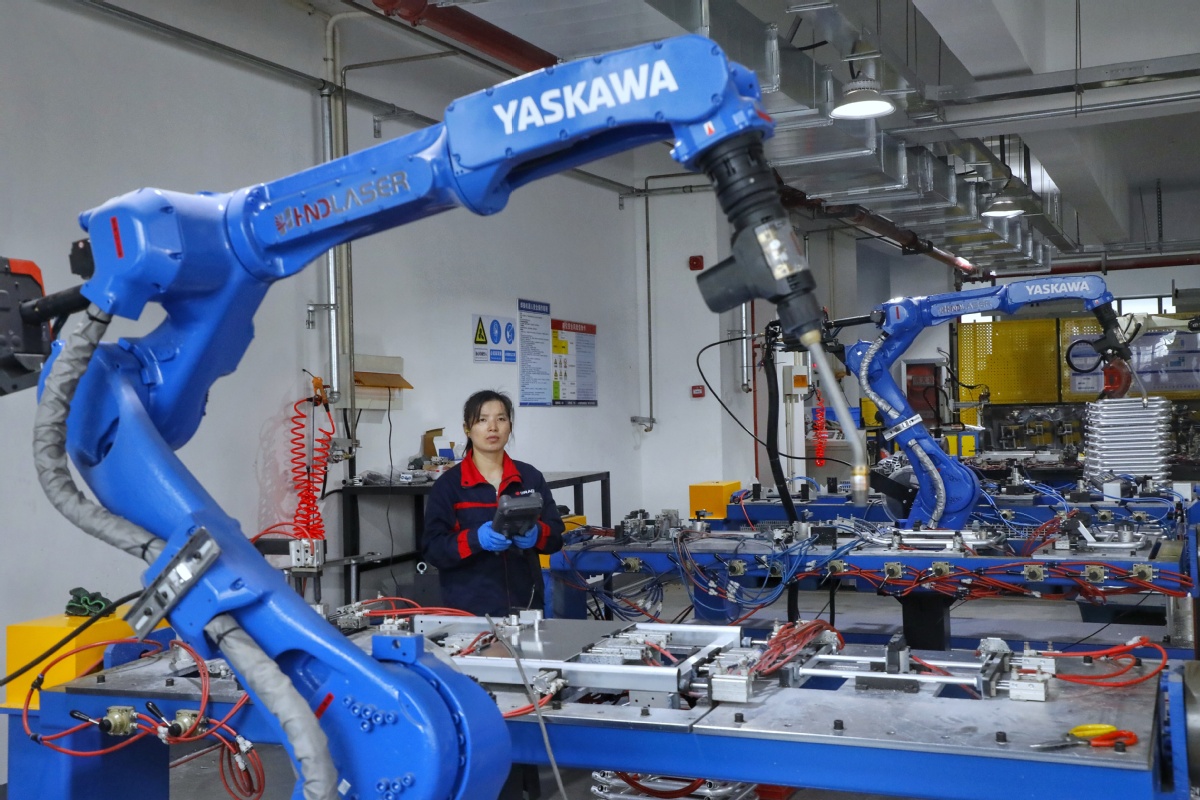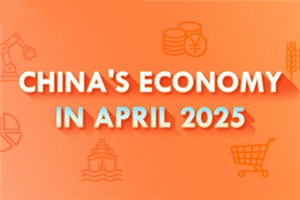Channels to fast-track export-to-domestic sales


The domestic market, which was previously a fierce battleground, is now seen as an important alternative for China's massive export-oriented firms looking to mitigate tariff hikes and capitalize on new growth avenues, as the world is faced with rising protectionism, analysts and executives said.
In the fresh produce section of a Century Mart in Hangzhou, Zhejiang province, a newly installed quality export product zone is drawing many shoppers. Shelves are stocked with shrimp, squid rings and other seafood products from Zhejiang Xingye Group Co Ltd — an aquatic processing company that, until recently, grappled with mounting inventory due to overseas trade barriers.
"Tariff impacts left us with perishable stock worth $2 million and urgent pressure to pivot," said Yue Junfeng, deputy general manager of the company's trading division. "But partnering with Century Mart opened a lifeline. Products moved from negotiation to shelves in just three days."
Adapting to local retail habits is critical. The mall advised Yue to downsize their packaging — a shift from export-oriented bulk orders to smaller, family-friendly portions.
For more exporters like Xingye, retailers in China have launched a green channel to fast-track export-to-domestic sales, offering one-on-one guidance on compliance, pricing and consumer preferences.
"Export-focused production lines and standards don't always align with domestic norm. Rebuilding supply chains and consumer trust from scratch is costly and complex," said Zhou Mi, a senior researcher at the Chinese Academy of International Trade and Economic Cooperation.
Addressing these challenges requires close collaboration between the government and retailers to help export firms overcome "growth pains", Zhou said.
The meeting held by the Political Bureau of the Communist Party of China Central Committee in late April emphasized the need to accelerate the integration of domestic and foreign trade.
The Ministry of Commerce launched a dedicated campaign in April to promote the domestic sales of quality export products. The initiative had helped secure over 167 billion yuan ($23.15 billion) in intended purchase agreements as of early May, attracting the participation of more than 2,400 foreign trade enterprises and 6,500 buyers.
In the past month, Shanghai Shimizu Housewares Manufacturing Co Ltd's orders destined for the US market have been temporarily suspended due to the impact of tariffs, leaving tens of thousands of their insulated cups in the warehouse in need of a new path.
It took just four days for the company to place its export products on the shelves of Global Harbor, a shopping mall in Shanghai, thanks to the effectiveness of the government-facilitated direct matching between enterprises.
"We used to think the domestic market was too saturated, but now there are new opportunities," said Zhang Xiaona, the company's deputy general manager. "The products we're shifting to the domestic market haven't reduced their prices; we're competing on quality and superior design."
Transition to the domestic market will not just be a short-term emergency measure, but a long-term strategic move, Zhang added.
Chinese companies that export their products to the US reported a 4.7 percent year-on-year increase in domestic sales in April, with the share of domestic sales in their total revenue rising by 2 percentage points compared with the first quarter, said the State Taxation Administration showed earlier this month.
Among the 31 major manufacturing sectors, 21 industries saw their domestic sales proportion increase compared to the same period last year.
The leather, fur and footwear sectors saw a remarkable 10 percentage point increase in domestic sales share, while computer and communication equipment, ferrous metals, furniture and food manufacturing industries all saw domestic sales share rise by more than 5 percentage points.
Expanding into the domestic market is undoubtedly an additional path for China's export-oriented enterprises, but like any single overseas market, they cannot become overly reliant on it, said Xu Hongcai, deputy director of the economic policy commission at the China Association of Policy Science.
"Enterprises must strike a careful balance, leveraging the domestic market as an alternative channel while maintaining a diverse global footprint," Xu said.





































